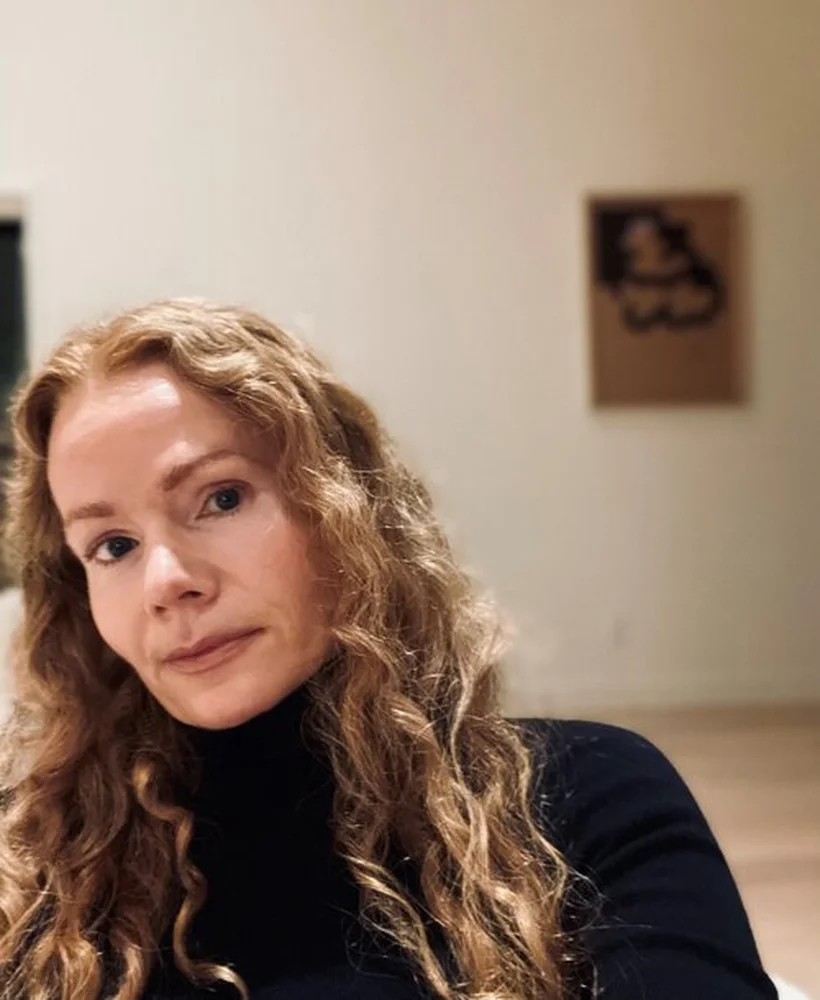
Deena Rymhs is a 2022–2023 HRI Campus Faculty Fellow. Rymhs’ project “Putting Back Together: Re-Worldings in annie ross’s Pots and Other Living Beings” focuses on a recently published book of poet and weaver annie ross (Maya). Composed of diptych photographs stitched together in a poetic travelogue through nuclear-infused (Indigenous) lands, Pots and Other Living Beings re-envisions social and ecological relations, notions of value, and frameworks of knowledge in its encounter with violated landscapes of the US southwest.
Learn more about HRI’s Campus Fellowship Program, which supports a cohort of faculty and graduate students through a year of dedicated research and writing in a collaborative, interdisciplinary environment.
What is unique about your research on this topic?
While my engagement with Indigenous literary and visual texts is informed by broader conversations in the humanities—especially in my work on infrastructure and biopower (roads, prisons, extraction zones)—I resist seeing these spaces and structures as totalizing just as the texts that I study push back on that assumption. My research is interested in enduring practices of finding meaning, relations, kinship, joy, and love afforded by Indigenous onto-epistemologies, and how such frameworks can productively inform the work that we do in the humanities. This redirection of influence happens by re-drawing the “grounded normativities” from which we think and theorize. For example, as someone who was trained in the discipline of English and whose focus has largely been literary criticism, I try to show in my research and teaching how Indigenous artists undo categories of genre that continue to discipline the work of humanities scholarship.
What drives your interest in this research?
I’ve often asked myself this question. What compels a decades-long relationship with art? From the outside, it’s a peculiar way to live—having intimate conversations with texts. It’s a very privileged space to occupy as well. The answer is always the same for me: art makes other worlds possible.
“I fully believe in the transformative power of the literary and visual texts that I study, and I’ve seen that belief borne out in the important political work that Indigenous artists have accomplished in the last thirty years alone. Reading a text—whether it be a book, a poem, or visual installation—is a deep form of listening.” — Deena Rymhs
How has the fellowship seminar impacted the way you approach your research?
Although there is a lot of shared intellectual ground among the community of scholars in my cohort, I was struck very early on by the sometimes-discrepant practices and norms that guide our research. I began to appreciate how instructive it is to step outside one’s discipline for an extended period; it makes one an observer to one’s scholarship in the best of ways. The session with my cohort on the date that we discussed my paper was one of the richest two hours I’ve spent intellectually. It helped me imagine my work on annie ross’s Pots and Other Living Beings as part of a larger project on care, caretaking, kin, and kin-making with strangeness and strangers.
© Humanities Research Institute